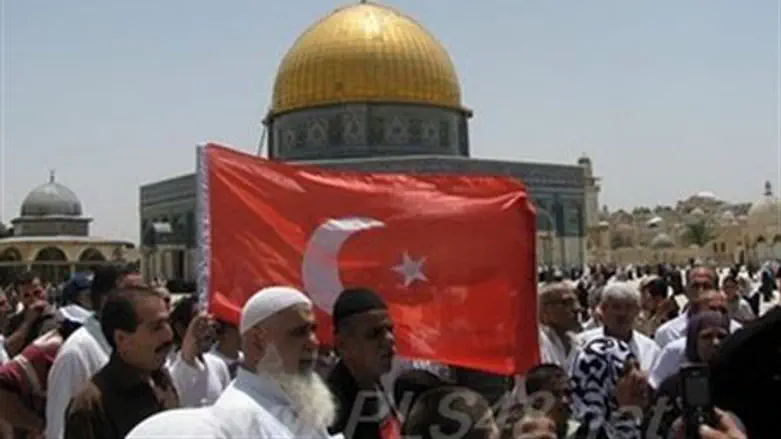
Turkey wasted no time after its “referendum for Islam” and promoted its alliance with Syria as the key for a regional Middle East peace.
Gloating after a strong majority voted for reforms that satisfy European Union demands for democratization while weakening the power of the secular-oriented judicial and military institutions, the Islamic government said the vote boosts Ankara's diplomatic position.
President Abdullah Gul said, "All the articles in the constitutional amendment package are about bringing Turkey's standards to the European level under Turkey's European Union membership process.” Turkey has been seeking membership in the EU, a move that would allow Ankara more political clout to force a Syrian-Israeli peace accord based on Israel’s surrendering the strategic Golan Heights.
After an informal meeting with EU ministers, Turkish Foreign Minister Ahmet Davutoğlu made clear his country’s objectives. “We have been involved in intense activity in the Middle East with mediation between Israel and Syria, in Lebanon and Iraq...and in the Caucasus,” he said in a report by the Turkish English language newspaper Today’s Zaman.
He added, ”We would like to continue this activity -- as an EU candidate country that holds accession negotiations -- in parallel and together with the EU."
During the government of former Israeli Prime Minister Ehud Olmert, Turkey mediated indirect talks between Israel and Syria, but the discussions abruptly ended when it became clear that Olmert’s political days were numbered.
France gave Turkey a boost Monday by warming its relationship with Syria, which has established a strong alliance with Turkey, Iran and Hizbullah, leaving Israel with a massive enemy threat north of the border.
Jean Claude Cousseran, the French envoy in charged of the ”peace process” in the Middle East, visited Damascus and delivered a personal message of praise from President Nicolas Sarkozy, who appointed Cousseran in July to renew talks between Syria and Israel.
Syrian President Bashar Assad took the opportunity to take another diplomatic jab at Israel, stating that he hopes “true developments would lead to the renewal of the peace process with Israel” but that “Israel’s policy does not herald such developments.”
France’s overtures have ignored recent criticism of Syria by the United Nations atomic watchdog, the IAEA, which showed that Damascus has been interfering with UN attempts to probe charges that Syria built an undeclared nuclear reactor with North Korean assistance. The reactor site was bombed in September 2007, presumably by Israel.